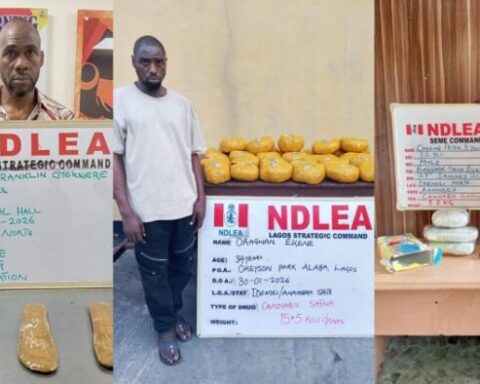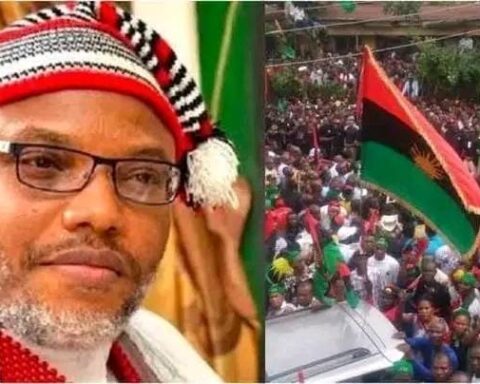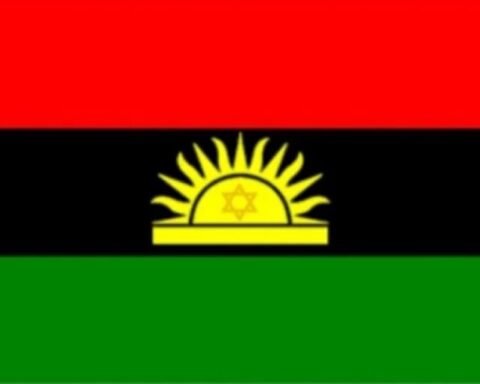In this piece, Farooq Kperogi takes advantage of the Tinubu government’s admission that it has not yet finalised its much-criticised state pardon to advise it, especially regarding the unmerited clemency granted to Maryam Sanda who murdered her husband in cold blood:
President Bola Ahmed Tinubu, like his predecessors, has the constitutional right to grant clemency. He draws this right from Section 175 of the 1999 Constitution, which grants him the power to pardon convicts and commute sentences. But constitutional rights are not moral shields, and mercy must ennoble justice, not mock it.
Prerogative of mercy, designed to temper justice with compassion, has, in the estimation of several people, been cheapened by the recent pardons Tinubu approved for murderers, drug traffickers and other hardened criminals.
The list of 175 beneficiaries of Tinubu’s pardon includes people convicted of violent crimes and narcotics offences. Among them is Maryam Sanda, sentenced to death in 2020 for killing her husband, Bilyaminu Bello, in a fit of murderous fury.
The case captured the imagination of the nation because it symbolised both the collapse of domestic civility and the delicate hope that justice could still work in Nigeria. Now, Tinubu’s pardon threatens to turn that hope to scorn and righteous indignation.
Following fierce, furious, sustained public backlash, the federal government hurriedly clarified on Thursday that no inmate has yet been released under the current Presidential Prerogative of Mercy exercise. Attorney-General Lateef Fagbemi said the process “remains at the final administrative stage” and that it is still undergoing verification and review.
That acknowledgement of bureaucratic pause is what has prompted this reflection. If the government is really and truly reviewing the pardons, it still has time to salvage its moral standing. Once the releases occur, it will be too late to reverse the damage.
The most exasperating aspect of the exercise is how it was packaged. When news broke that Maryam Sanda was among those granted clemency, the outrage was instantaneous. To soften the blow, a press conference was convened, and Bilyaminu Bello’s biological father by the name of Ahmed Bello Isa, who had been entirely absent from his son’s life, was suddenly thrust before cameras to claim credit for Sanda’s release.
Reading from what appeared to be a prepared statement, he said he had sought the pardon because he wanted his grandchildren to have the benefit of growing up with their mother. The wealthy and well-connected father of Maryam Sanda, who appeared to have engineered the news conference, sat beside the deadbeat father and enjoyed the theatre.
Meanwhile the family that had adopted, nurtured, educated and buried Bilyaminu Bello watched in shock and disempowering rage. They said the pardon reopened old wounds and compounded their grief with humiliation.
Forgiveness is virtuous only when it is voluntarily given. It can never be coerced or legislated. We all know that the spectacle of the biological father’s news conference was designed to sanitise the gross injustice of Maryam Sanda’s unmerited pardon and to launder the privilege of her parents through a choreographed display of mawkish sentimentality.
But it succeeded only in deepening public disgust. No one disputes that mercy has a place in governance. A humane system recognises remorse and rehabilitation. But presidential pardon must be the culmination of justice, not its subversion. When the powerful can engineer clemency for their own, while the poor rot in overcrowded prisons for petty theft, mercy becomes a weapon of inequality.
prosecutors, correctional officials and mental-health professionals, not from political patronage or backroom lobbying. And it should be rare, not routine.
If Tinubu insists on exercising this right, let him do so for prisoners of conscience, wrongly convicted individuals, and those who have served decades for non-violent offences. It insults justice if it’s mostly for the wealthy and the well-connected who can summon ministers to plead their cause.
By including Maryam Sanda and other violent offenders, the Tinubu administration has set a perilous precedent. It invites every future convict with political or financial clout to expect similar treatment. It signals to judges that their sentences can be casually undone, and to prosecutors that their diligence is futile.
Most dangerously, it erodes public faith in the rule of law. Once people believe justice is negotiable, they seek it elsewhere, often in violence or vigilantism. Nigeria’s fragile social fabric cannot afford that descent.
The Attorney-General’s statement that the list is still “under review” offers the president a chance to rethink. He can still remove names that discredit the exercise and reinforce public confidence by publishing transparent criteria for eligibility.
He can also seize this moment to reform the clemency process itself. The Presidential Advisory Committee on the Prerogative of Mercy must include civil-society representatives, victim-advocacy groups and credible clergy.
If this government truly values mercy, let it show compassion to the countless awaiting-trial inmates languishing without verdicts, some jailed longer than the sentences for their alleged crimes. Mercy belongs not in freeing the privileged guilty but in rescuing the forgotten innocent.
Every pardon sends a message. The absolution of Maryam Sanda tells Nigerians that if you are the scion of a powerful and wealthy family you can murder and get away with it.
True mercy cannot be scripted, televised or bartered for lineage. Tinubu’s mass clemency, if implemented as announced, will deepen Nigeria’s moral anemia.
The president should pause the process, strike out the names that insult justice, and remember that mercy divorced from morality is corruption. For once, let power bow before principle.
Follow us on all social media platforms @dailyquery for news and analyses around the globe.



























